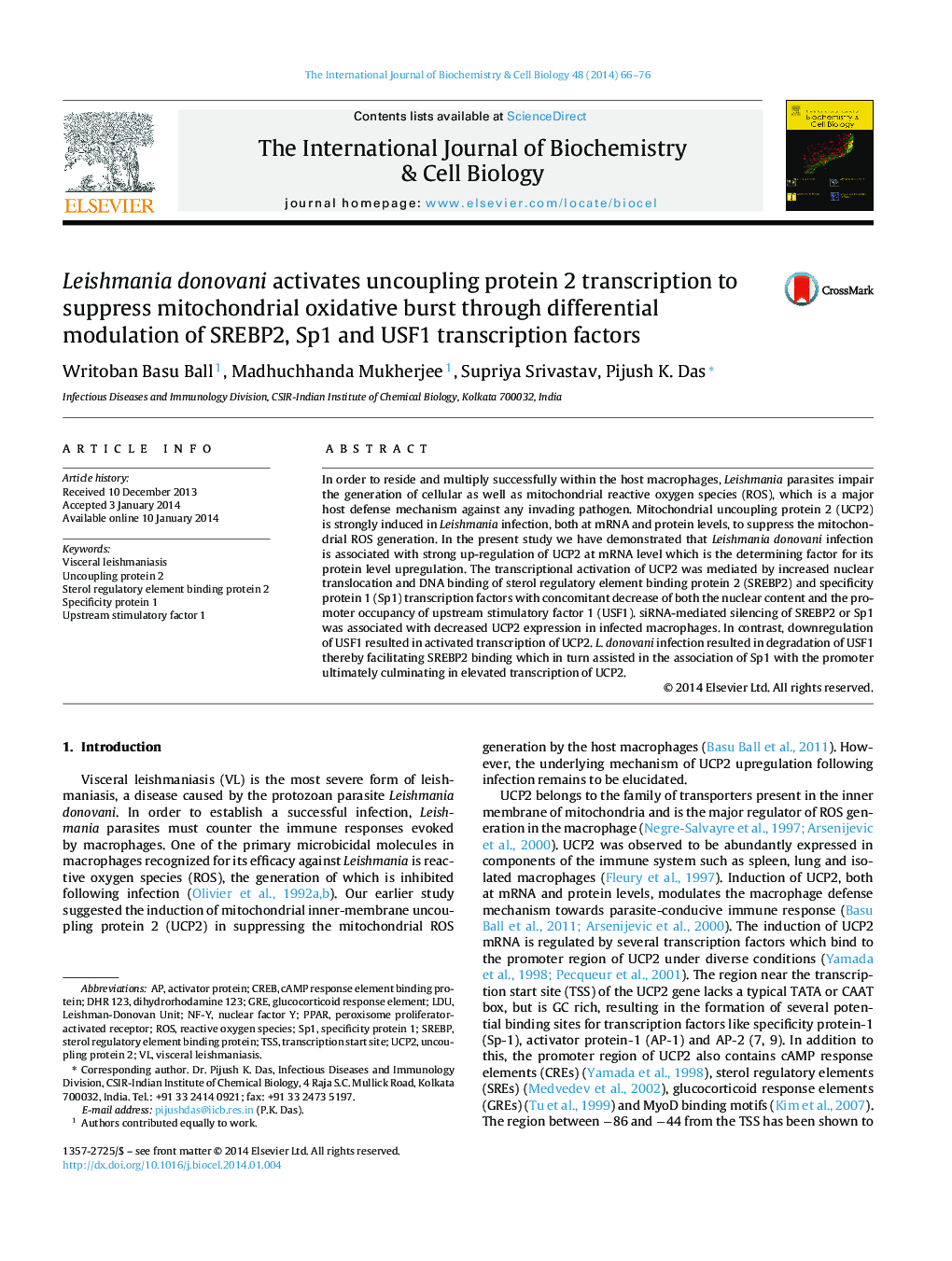| Article ID | Journal | Published Year | Pages | File Type |
|---|---|---|---|---|
| 8323707 | The International Journal of Biochemistry & Cell Biology | 2014 | 11 Pages |
Abstract
In order to reside and multiply successfully within the host macrophages, Leishmania parasites impair the generation of cellular as well as mitochondrial reactive oxygen species (ROS), which is a major host defense mechanism against any invading pathogen. Mitochondrial uncoupling protein 2 (UCP2) is strongly induced in Leishmania infection, both at mRNA and protein levels, to suppress the mitochondrial ROS generation. In the present study we have demonstrated that Leishmania donovani infection is associated with strong up-regulation of UCP2 at mRNA level which is the determining factor for its protein level upregulation. The transcriptional activation of UCP2 was mediated by increased nuclear translocation and DNA binding of sterol regulatory element binding protein 2 (SREBP2) and specificity protein 1 (Sp1) transcription factors with concomitant decrease of both the nuclear content and the promoter occupancy of upstream stimulatory factor 1 (USF1). siRNA-mediated silencing of SREBP2 or Sp1 was associated with decreased UCP2 expression in infected macrophages. In contrast, downregulation of USF1 resulted in activated transcription of UCP2. L. donovani infection resulted in degradation of USF1 thereby facilitating SREBP2 binding which in turn assisted in the association of Sp1 with the promoter ultimately culminating in elevated transcription of UCP2.
Keywords
Related Topics
Life Sciences
Biochemistry, Genetics and Molecular Biology
Biochemistry
Authors
Writoban Basu Ball, Madhuchhanda Mukherjee, Supriya Srivastav, Pijush K. Das,
